Last Updated on February 26, 2025 by Rachel Hall
I know that I’m not the only one who’s had to relocate recently. The pandemic has caused massive disruption, job losses, options to work remotely, fewer social opportunities and has just generally turned lives upside down. For those of us who are new in town, things can be a bit lonely. We’re far away from old friends and typical ways of meeting new people are closed or inaccessible. What better time, then, to try out finding local friends online? Luckily, Bumble has set up a section (Bumble BFF) of their dating app just for this eventuality: if you’re looking to make friends, but aren’t interested in a sexual/romantic relationship, they can connect you with people who want the same thing. I decided to review Bumble’s BFF service to see what happened.
Setting up a profile
The sign-up process for Bumble BFF was pretty straightforward: name, age, gender identity (with lots of options for people who are outside the binary), and then I was given the option of selecting what I’d be using Bumble for: dating, networking or making friends. Naturally, I chose the latter. Then I was told that matches would expire if neither of us had messaged within 24 hours, and a quick reminder to be kind to other users, and then my account – which was rather bare – was set up! I went through to add a little colour, like my favourite film, secret talent and the world problem I’d solve, and then had to work out what to add to my bio.
I decided to add “looking for the Rachel to my Monica”, which might be basic, but seemed like a solid starting point. Nothing to interpret as flirtatious, and easy to understand. Finally, there were some questions about the sort of friends I was looking for (night out, playdate (!), roommate), if I drank alcohol/smoked and confirmed my pronouns. Whilst I, a cisgender woman, am perfectly comfortable with she/her pronouns, I really appreciate Bumble normalising checking to support the non-binary and trans communities.
Initial impressions
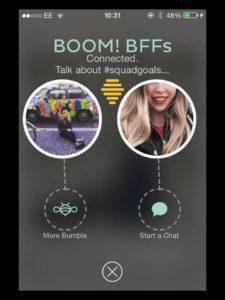
Ironically, the first person suggested was named Monica. She was stunningly beautiful, worked as a teacher, seemed pretty cool… but lived 37 miles away. As Ariana would say, “thank you, next”. This kept happening: the suggestions were all women of approximately the same age as me, some were new to the area and some had just got out of relationships, but almost all lived in different cities. Distance, apparently, was going to be the problem. Of course, that wasn’t going to stop me from scrolling… it’s famously addictive and I really enjoy it. If you’re wondering how to use Bumble BFF, you’ll be pleased to know that it seems to be exactly the same as their online dating site. You can swipe, message, review your profile and access a premium membership if you so choose.
Male users
I have a confession to make. I thought there was a good chance that everyone I interacted with would be a lonely man who couldn’t tell platonic love from sexual desire and would brand me a slut for using what is ostensibly a dating app and then refusing to sleep with him. Instead, I found interesting, fun women who genuinely seemed to be looking for friends. There were a few men, but none of them seemed sleezy or unpleasant – in fact, they appeared to have taken precautions to ensure that they came across as friendly, not flirty. Given the epidemic of male loneliness, I’m glad that men are taking the time to connect with others and regret my previous assumptions.
Discussions with a significant other
There was also the matter of explaining the situation to my boyfriend. After assuring him that this was only ever going to be an opportunity to make friends he seemed a little uncomfortable, so I showed him my profile and we ended up swiping through some potential matches together. What could have been strange instead ended up as a funny experience.
Reviewing interactions
I decided to review my interactions a few days later. I’ve matched with about 15 people, spoken to five of them and in one case, I’d actually like to stay in touch. So I guess that so far there isn’t anyone I’d consider a “Bumble friend”, but perhaps with persistence that will change. No idea how many profiles I swiped through, though: as I’ve said, it’s pretty addictive and there was one evening where I couldn’t sleep so decided to (slightly bitchily) judge people online instead. We’ve all been there. The people I chatted with seemed friendly, kind and interesting but it felt difficult to judge the chemistry without any in-person interaction, which is a problem for online dating, too. Some things seemed a bit forced and there were a few matches that made me realise that having basic demographics in common does not guarantee a friendship.
Friendship dynamics
There’s also the intensity of one-on-one friendships to consider. If you’re part of a large group, you might be closer with some people than others, and you know that the basic structure should hold everyone fairly well together and make sure that nobody gets left out. However, with Bumble, you’re matched with one person and They Are Your Friend Now. If you, for example, go for dinner or meet up for a drink, you spend the whole time talking to them instead of enjoying the slightly more relaxed and casual environment of a group hang. Neither of these things is bad, but it’s worth considering that if you’re looking for your new 15 closest girlfriends to do Saturday brunch with, Bumble might not be the right place. The people on Bumble BFF are also looking for friends which probably means that, at the moment, they don’t have any and therefore won’t have a friendship group that you can simply slide into.
Conclusion
Overall, I thought that Bumble BFF was an interesting natural progression for a dating app. If they’ve successfully managed to help connect people romantically, why wouldn’t they try to recreate that for platonic relationships? To offer, perhaps, an app for making friends? The thing is, dating sites like Bumble are famously good for facilitating flings, not long-term relationships, and this seems to be the same with Bumble BFF. I might have gained some Instagram followers or had a chat with someone about a mutual interest, and I might even go and grab a drink next weekend… but I doubt anyone I swiped through would be at my wedding, celebrating a promotion at work, godparent to my children or mentioned in my will. But that’s ok, as long as I understand what’s likely to happen.

Rachel Hall, M.A., completed her education in English at the University of Pennsylvania and received her master’s degree in family therapy from Northern Washington University. She has been actively involved in the treatment of anxiety disorders, depression, OCD, and coping with life changes and traumatic events for both families and individual clients for over a decade. Her areas of expertise include narrative therapy, cognitive behavioral therapy, and therapy for traumatic cases. In addition, Rachel conducts workshops focusing on the psychology of positive thinking and coping skills for both parents and teens. She has also authored numerous articles on the topics of mental health, stress, family dynamics and parenting.

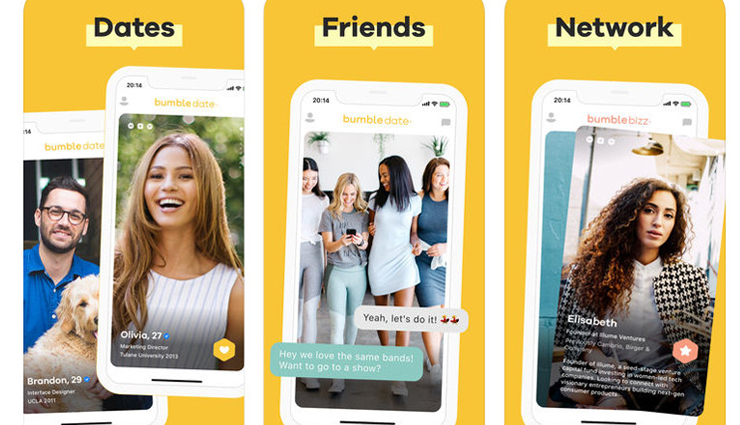
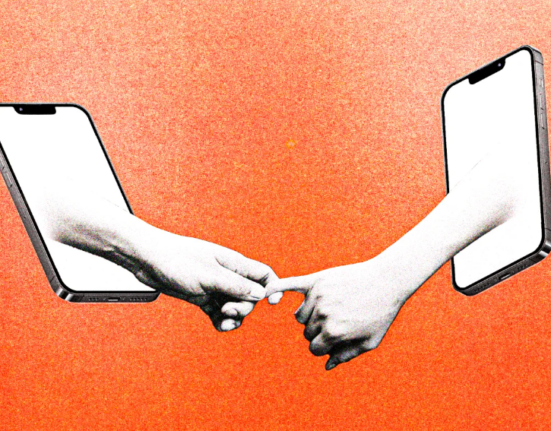

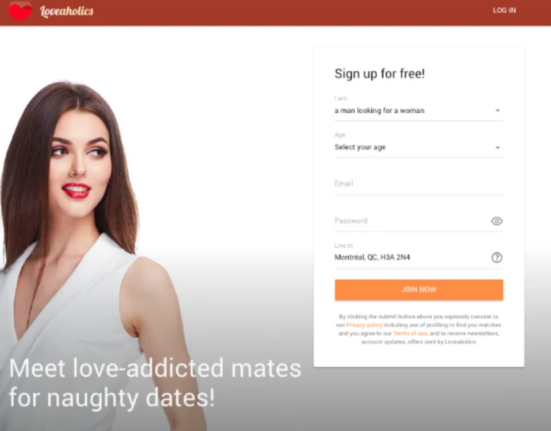

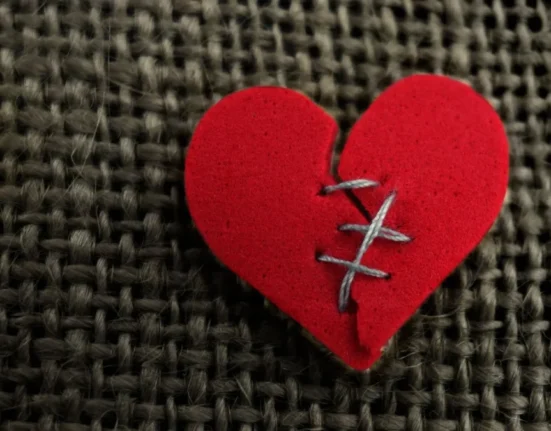
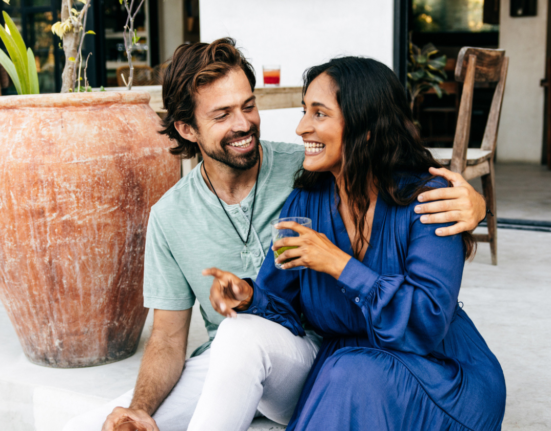
Leave feedback about this